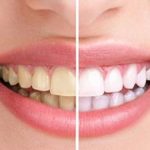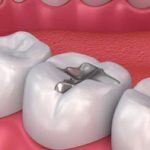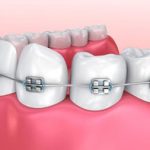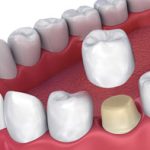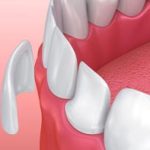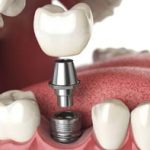DENTAL SCALING AND ROOT PLANING
What are tooth scaling and root planing?
Scaling and root planing are otherwise known as deep cleaning in dentistry. The procedure gets rid of tartar (hardened minerals) that can adhere to your teeth. You may need these treatments if you have periodontitis (advanced gum disease).
Tooth scaling removes tartar from the surface of your teeth that you see when you smile. Root planing removes tartar from the roots of your teeth below your gum line.
Who performs tooth scaling and root planing?
Dentists and periodontists (gum disease specialists) offer these gum disease treatments. The procedure is usually done by a dental hygienist. Tooth scaling and root planing take place during the same dental visit. You’ll usually need more than one appointment to treat all of your teeth.
Who needs tooth scaling and root planing?
Close to half of Americans over the age of 30 have some form of periodontal disease. Your risk of developing periodontitis increases as you get older. Nearly 3 in 4 adults over 65 have it.
Risk factors for periodontitis include:
- Diabetes.
- Family history of gum disease (genetics).
- Health conditions like diabetes, heart disease, and arthritis.
- Hormone changes tied to oral health, such as pregnancy gingivitis or those brought on by certain types of birth control.
- Improperly fitted dental bridges or defective dental fillings.
- Overbite or crooked teeth (malocclusion).
- Poor oral hygiene.
- Smoking.
- Stress.
What happens before tooth scaling and root planing?
Periodontal disease usually doesn’t cause pain. Your dentist may diagnose you with periodontitis during a dental check-up. You may also get dental X-rays to look for problems like cavities, an abscessed tooth (tooth infection) and bone loss. If you have periodontitis, your provider will discuss treatment options with you. Tooth scaling and root planing will take place during a future appointment.
What should you expect from a tooth scaling and root planing treatment?
This deep dental cleaning goes below your gum line to completely remove tartar from each of your teeth, including their roots. To minimize any discomfort or pain, your provider numbs your mouth with a local anesthetic. You’re awake for the procedures.
What happens during tooth scaling?
Your provider uses a vibrating tool called an ultrasonic scaler to perform the scaling process. These steps may take place during tooth scaling:
- A vibrating metal tip on the scaler chips tartar off of your teeth above your gum line.
- A water spray on the scaler washes away the tartar and flushes plaque from the gum pockets.
- Your provider uses a manual (not powered) dental scaler and scraping device (called a curette) to remove small remaining pieces of tartar.
What happens during root planing?
Root planing is like tooth scaling except it takes place on the roots of your teeth that sit below your gum line.
During root planing, your provider:
- Uses a tool to gently push aside your gum tissue and expose the surface of the roots.
- Uses the same tooth scaling tools to chip tartar from the roots, making them smooth.
- Sometimes, may inject an antibiotic medication directly into any gum pockets.
What happens after tooth scaling and root planing?
Bacteria and plaque are less likely to stick to the smooth surfaces of your treated teeth. Inflammation decreases as your gums heal. Your healthy gums can reattach more firmly to the smoothed tooth roots.
During follow-up appointments, your provider will measure the pockets surrounding your gum tissue. If the pockets haven’t decreased, you may need periodontal surgery. Surgical treatments for periodontitis include:
- Bone graftingto replace lost bone with bone from a donor or lab-made material.
- Flap surgery (pocket reduction surgery) to make a gum pocket smaller by lowering your gum line.
- Soft tissue grafting to replace lost gum tissue with tissue from the roof of your mouth (palate) or a donor.
What are the benefits of tooth scaling and root planing?
Studies show that tooth scaling and root planing are effective treatments for periodontitis. They can keep you from losing gum tissue, teeth and bone.
What are the risks of tooth scaling and root planing?
Tooth scaling and root planing can cause temporary discomfort while you heal. But the overall risks are minimal. People with certain heart conditions, like endocarditis, or who have synthetic heart valves may need to take antibiotics before getting any dental procedures. Antibiotics lower your risk of a bacterial infection. Ask your dentist and your cardiologist if you need to take this preventive step.
Why to have dental scaling and root planing in Iran?
Iran has numerous well-equipped centers and clinics for dentistry services in every city. As well, highly experienced dentists in all dentistry specialties offer high-quality medical services at affordable prices due to the cheap currency in Iran in comparison to foreign currencies.
You may not have a periodontal specialist in your region or you may desire to have a good dental scaling and root planing surgery. You may get other medical services as dental fillings, teeth whitening… etc in one trip to Iran. There is no waiting time, not to mention visiting Iranian memorial culture and charming nature.
How much is the cost of dental scaling and root planing in Iran?
The dental scaling and root planing cost differ according to the city and the dentist, but an average cost for every quadrant is $120-$300 in the USA. This means that the cost of scaling and root planing in a dental office for all the mouth is $480-$1,200, which is a high cost for dental cleaning scaling and root planing. Besides, you may need other dental treatments as teeth whitening or dental filling.
Iran offers you a high quality dental deep cleaning scaling and root planing with a fraction of this sum, due to the cheap currency in the country. Do not hesitate and contact SinoheMedTour now to know more about your journey to Iran.





